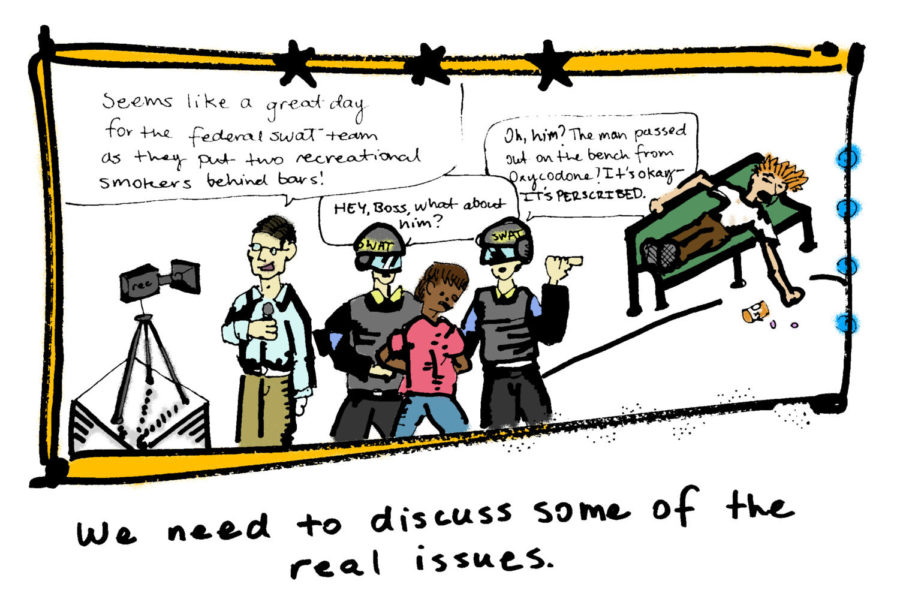Is the opioid crisis a mental health issue?
The opioid crisis has been affecting the United States for almost ten years. How we got here and what to do next is hotly debated.
The opioid crisis came about as a result of the campaign in the late 1990’s to treat pain. Opioids became the go-to drug for many doctors to prescribe when they were treating pain. As a result, many patients became addicted to prescription drugs, which are gateway drugs for heroin. According to the National Institute on Drug Abuse, in 2015, two million people suffered from prescription opioid substance abuse and 33,000 died as a result of opioid-related drug abuse. The Centers for Disease and Control reports that deaths from prescription opioids have quadrupled since 1999. Politicians, doctors, and mental health professionals all have their own stance on how to solve the problem, but it’s going to need more than a band-aid solution to heal the deep wounds the country has suffered as a result of this crisis.
A main opinion in the discussion is that the opioid crisis is not only an issue of overprescription but also mental health. Substance abuse is dependent on both psychological and physiological dependency. Addiction and mental illnesses are often stigmatized, and the people who need help the most are ostracized from communities and ashamed. Chirlane McCray, leader of New York City’s mental health and substance abuse intervention and prevention, tries to bridge the gap between mental illness and mental health treatment.
“As a nation, we’re failing: failing those with substance use problems, failing those with mental health problems, and failing their friends and family,” McCray said.
Giving access to mental health care and substance abuse treatment should allow substance abusers and the mentally ill to start their road to recovery.
Mental health care is only a small part of the solution for the opioid crisis. Doctors and health care professionals also have differing methods of how to approach the issue.The overprescription of opioids is what caused this issue, so many doctors have resorted to simply only prescribing opioids for patients who are in severe pain. Pharmaceutical companies profited heavily from the overprescription of opioids after falsely advertising their safety. Patients also have their opioids stolen, so many doctors have tried to prescribe opioids in the smallest doses possible or sometimes not at all. Dr. Jacquelyn Corley, a member of Duke Global Neurosurgery and Neuroscience, worries if prescribing opioids at all still contributes to the crisis.
“When I examined the available research on opioid-related deaths and addiction, it became clear that despite the extra discomfort some might feel,” Corley said. “In the end, many patients are better off without opioids, even if it means more discomfort.”
By keeping opioids off of all patients, opioids become less accessible, making them more expensive and harder to obtain. This approach, however, keeps legitimate pain medication out of the hands of those who may need it. Doctors telling patients to ‘suck it up’ doesn’t sit well with many health professionals. Many hospitals have come up with more effective pain management plans that reduce the number of opioids that are given to patients while still giving opioids to those who really need it. Legislations have also influenced the amount of opioids that are prescribed, and politicians have proposed a variety of solutions for the issue.
Many politicians have approached the opioid crisis through funding mental health services or attacking big pharmacies who profit heavily from the opioid crisis. Congressman Joe Kennedy III believes there are two ways to attack the opioid crisis.
“I’m trying to approach it from two angles: by drastically expanding access to behavioral mental health and substance use disorder services, and by trying to cut down on the supply of opioid pills that are out there on the street,” Kennedy said.
Opioid addiction hurts thousands of people every day. Politicians are recognizing the severity of the crisis and many feel obligated to address it. I believe that politicians can have a tremendous amount of impact on the opioid crisis. Policies on the supply of opioid pills given to patients and the creation of mental health services will cause a large reduction in the amount of opioids.
A combination of mental health services, pain management plans, and legislation will halt the opioid crisis. Mental health services and education help reduce the stigma against substance abuse which allows substance abusers to receive help. Offering these services through political action will give substance abusers more access to these services. Hospitals can also stop the opioid crisis at the root of the problem and make pain management plans that reduce the amount of opioids that are given to patients. The opioid crisis didn’t start overnight, and it won’t end overnight. But there’s need to be steady action towards the crisis.
Your turn: How do you think we should approach the opioid crisis to resolve the issue? What legislation do you think will help resolve the opioid crisis?








